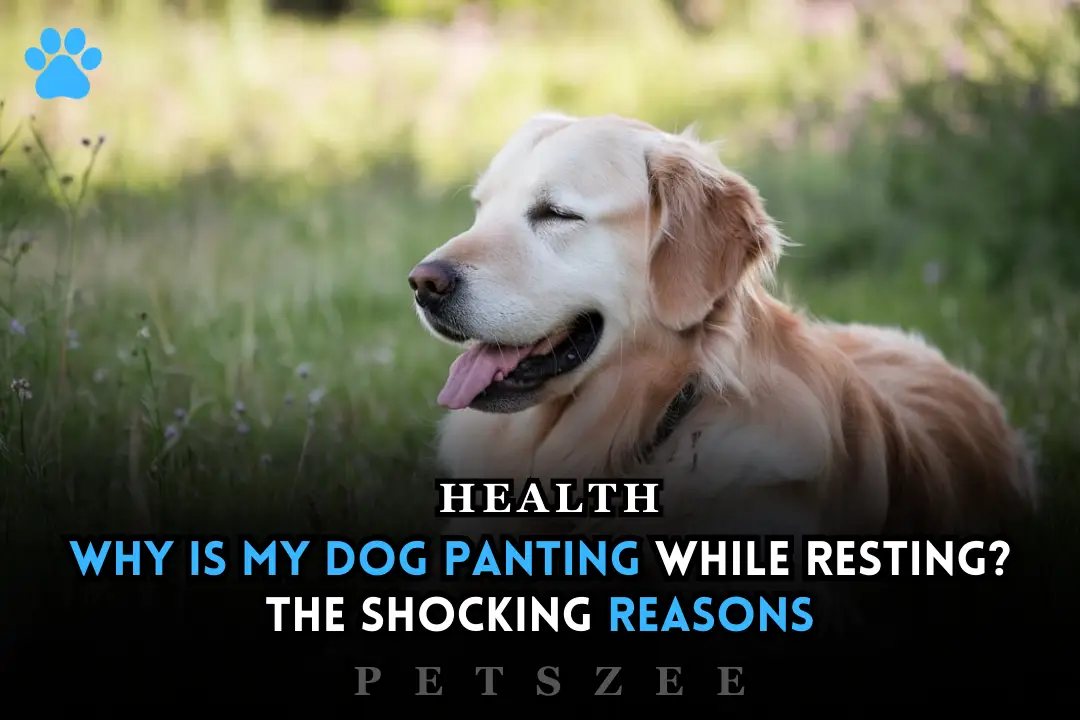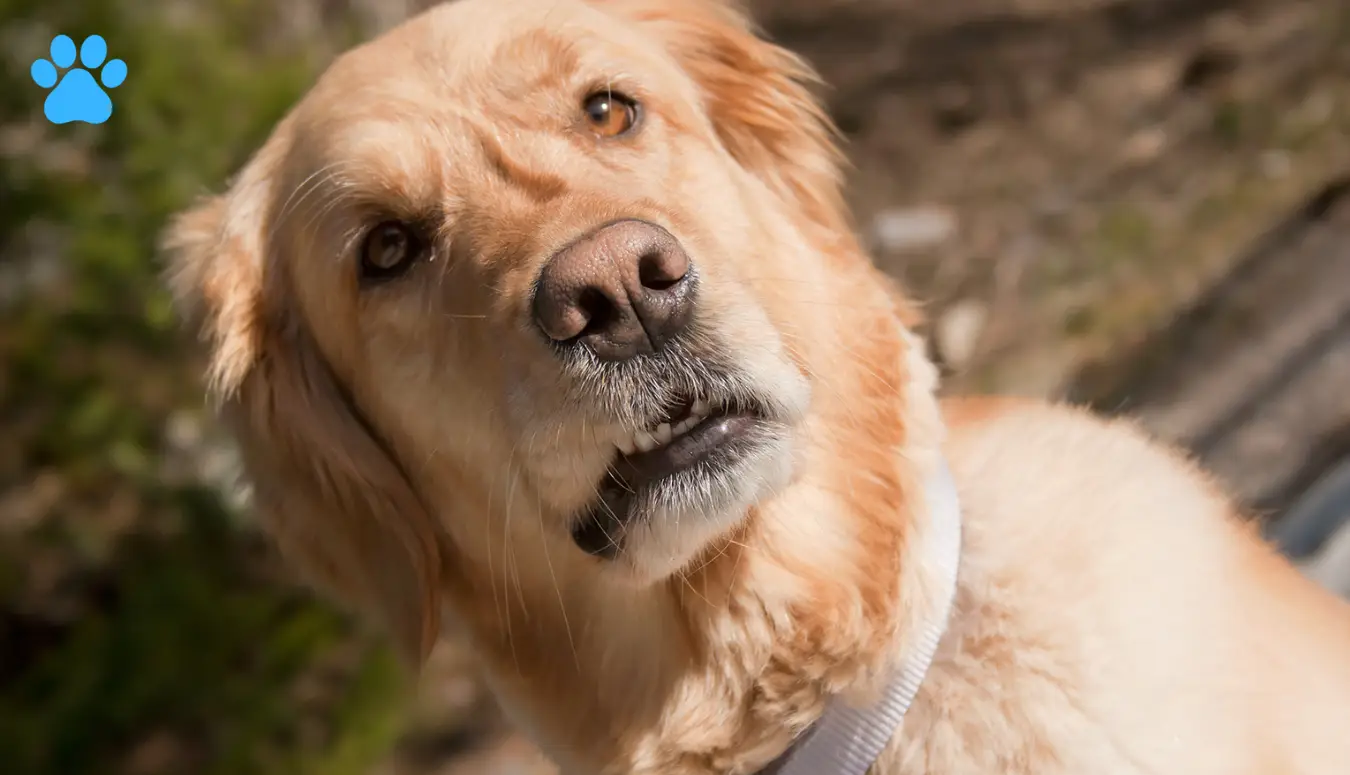Seeing your dog panting while resting might set off some alarm bells. Usually, dogs pant to cool down after running or playing, but if they’re panting without any obvious reason, it could be a clue to something deeper. I remember the first time I noticed my dog panting heavily while resting, and it really made me worry.
This can range from anxiety to underlying medical conditions that aren’t immediately visible. As a concerned doggy parent, recognizing these signs is crucial, as it could mean a trip to the vet is necessary to ensure your four-legged friend stays healthy and happy. This blog will explore the reasons behind excessive panting while resting, helping you understand when you need to worry and what actions to take.
Table of Contents
Togglewhy is my dog panting while resting
If your dog pants while just resting, it could be more than cooling down. Dogs sometimes pant in warm environments, but frequent, heavy panting could signal an underlying health problem like respiratory issues, heart problems, or obesity. If it seems unusual, a vet visit can help ensure your dog’s health is on track.
How Much Dog Panting Is Excessive?
To know if panting is excessive, check if your dog stops after about 5 to 10 minutes of resting in a cool, shady spot. If your dog is still panting heavily or taking more than 40 breaths per minute after a break, it could be a sign that something’s not right and should be investigated. Panting can vary in dogs depending on their breed, age, and fitness.
Some dogs might pant more if they aren’t as active or are less fit, while those with a busier lifestyle might handle exercise better. According to a study published in PubMed, “panting is the major avenue of evaporative cooling in dogs exposed to heat and/or exercise”When my dog pants for longer than usual, I take a moment to observe if there are other signs I should be worried about.
What are the Possible Causes of Excessive Dog Panting?
Dogs may pant heavily for many reasons beyond just being hot. Heatstroke, pain, anxiety, and stress are common triggers. Certain breeds, like Boston terriers, boxers, and pugs, have squished faces that make breathing harder, so they may pant more. Heart and lung disease, Cushing’s disease, or an injury can also cause heavy panting. If your dog pants heavily or rapidly, it could mean it’s sick and may need veterinary attention to find the root cause.
“excessive panting in dogs can be a sign of underlying health issues, such as heat stroke, heart problems, or respiratory issues.”
Dr. Karyn Kanowski
Here are some possible causes of rapid or heavy breathing in dogs:
- Heatstroke
- Heart disease
- Lung disease
- Cushing’s disease
- Pain
- Anxiety
- Exercise
- Smoke Inhalation
- Asthma
- Kennel Cough
- Stiffening of Airways
- Windpipe Issues
- Pressure on Windpipe
- Fungal Respiratory Infection
- Bacterial Respiratory Infection
- Lung Diseases such as Cancer
- Laryngeal Paralysis
- Nausea
- Medication
- Breed Characteristics
- Heat Stroke
- Parasites
- Compressed Lungs
- Hernia
- Anemia
- Pneumonia
- Collapsing Windpipe
Let’s talk about the most noticed causes of excessive panting in dogs:
Heatstroke
Heatstroke is very dangerous for dogs, especially on a hot summer day. Even a simple walk without enough shade or water can put them at risk. The People’s Dispensary for Sick Animals (PDSA) noted that “panting is usually a response to something, so you are more likely to see your dog pant after exercise or on a warm day”. Dogs can’t cool down easily, and too much heat can lead to seizures, brain damage, or even death. It’s safest to walk them at dusk or dawn when it’s cooler.
Heart Disease
Heart problems can make dogs tired and cause abnormal panting even after a short run or walk. When a dog’s heart has issues like faulty valves, irregular rhythm, or congestive failure, it struggles to pump blood well. This can cause symptoms like pale or blue-tinged gums and tongue, coughing, and labored breathing. In serious cases, dogs might even collapse. Conditions like cardiomyopathy can lead to excessive panting as the heart works extra hard to keep up.
Lung Disease
Lung conditions can make dogs pant and breathe faster, especially after exercise. Issues like pneumonia, inflammation, lungworm, or even cancer can affect how well their lungs work, causing them to pant more to get enough air. Dogs with lung problems might also have coughing spells and struggle with normal breathing. If panting seems unusual, it might be because their lungs are not working as smoothly as they should.
If you notice any of these signs, along with heavy panting in your dog, it’s important to consult with a vet.
| Sign | Description |
|---|---|
| Fast or shallow breathing | Breathing quickly or with shallow breaths |
| Open-mouthed breathing | Breathing with an open mouth to get more air |
| Drooling a lot | Producing excessive saliva |
| Restlessness or anxiety | Showing signs of worry or unable to relax |
| Feeling tired or weak | Lacking energy or appearing unusually weak |
| Gums changing color | Gums may appear pale, blue, or darker than normal |
| Coughing or wheezing | Making sounds while breathing, like a cough |
| Drinking more water | Increased thirst and frequent water intake |
| Loss of appetite | Refusing or eating less food than usual |
| Acting differently | Unusual behavior, like hiding or irritability |
| Physical discomfort | Signs of pain, like limping or avoiding touch |
| Panting excessively | Panting more than usual, even at rest |
| Shivering or trembling | Shaking or trembling, often indicating pain |
| Difficulty standing | Struggling to stand or walk properly |
| Vomiting or diarrhea | Upset stomach causing vomiting or loose stools |
When to Consult a Vet
If your dog is panting a lot while resting and there’s no obvious reason or you see any other sign, it might be time to see a vet. I remember feeling anxious the first time I took my dog to the vet for excessive panting, but it helped put my mind at ease when the vet explained everything.
Sometimes, panting can mean there’s a problem with the heart, lungs, or circulatory system. Other signs, like changes in thirst, appetite, or behavior, can also show there’s an issue. It’s helpful to make a mental note of any unusual situations, like a strenuous walk or a time you left the house, which might explain the panting.
The vet will check your pup’s overall health and may do tests like X-rays to look at the heart, lungs, and abdomen. If needed, the vet can give medications, pain relief, or fluids to help your pooch recover. For anxiety or stress-related panting, the vet may suggest special training or help from a certified behaviorist. In serious cases, hospitalization might be needed to monitor breathing and get your pet on the road to healing.
Final Thoughts
If your dog is panting while resting, it might seem like normal behavior, but it can also be a sign of something more serious. While some panting is expected, excessive or noisy breathing can indicate distress or a hidden health problem. As a pet parent, I’ve found that staying alert to my dog’s behavior and being proactive has made a big difference in keeping them healthy and happy.
Note: The advice given in this post is meant for informational purposes only and does not count as medical advice for pets. For a proper diagnosis of your pet’s condition, please make an appointment with your veterinarian.
FAQs
When should I worry about my dog panting?
If your dog is panting more than normal or has other symptoms, it’s a good idea to make an appointment with a veterinarian. They can help figure out the cause and whether any tests or treatment might be needed to ease your worry.
Why is my dog panting so much while laying down?
Sometimes dogs pant even when resting due to common reasons like pain, anxiety, or a disease. During stressful moments, like a thunderstorm in Texas, or from aching joints, their bodies might increase cortisol, causing excessive panting as a sign of stress.
How long is too long for a dog to pant?
If your dog is panting heavily for over 30 minutes while resting in a cool environment, or if they seem overstimulated, injured, or sick, it may be a concern. It’s best to have them checked by a veterinarian if this happens.
Why is my old dog panting while resting?
For senior dogs, panting might indicate pain due to age-related issues. Older dogs can be prone to osteoarthritis, dental problems, and other chronic illnesses that may trigger excessive panting.
How to calm a panting dog in the car?
To reduce panting in the car, keep your dog safe and comfortable with a cool temperature and fresh water. This can help with any stress, discomfort, or motion sickness they may feel. Some Snoozer Pet Products even offer ways to make travel easier for dogs.

